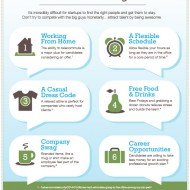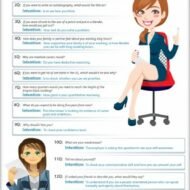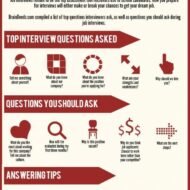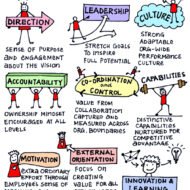Posted by Managementguru in Business Management, Human Resource, Labor Management, Motivation, Principles of Management
on Jun 10th, 2014 | 0 comments

The employees have to be compensated for what they do for an organization – hold on folks, besides the salary prerequisites, there are many other things which help in retaining them in the company and sustain their motivation. Monetary benefits alone do not satisfy employees. You have to think about other ways to pay back your employees through non cash benefits to make them feel they belong. Motivation is a big factor for consideration when it comes to retaining your employees. Direct Compensation Employees expect fair wages commensurate with their skills, experience and job content. Wages should be ascertained keeping in mind the cost of living in the particular locality. These should be revised periodically to account for inflation so that the real wages do not go down over the time. Wages must have a system of yearly increments, which should be flexible enough to reward good performance. Legal Perspective In India, the Minimum Wages Act, 1948 provides for fixation and enforcement of minimum wages in respect of scheduled employments. A tripartite Committee Viz., “The Committee on Fair Wage” was set up in 1948 to provide guidelines for wage structures in the country. Article 39 states that the State shall, in particular, direct its policy towards securing (a) that the citizen, men and women equally shall have the right to an adequate livelihood and (b) that there is equal pay for equal work for both men and women. Fringe Benefits These are also termed as indirect compensation that an organization provides to its employees which may include – insurance against accident, travel concessions, medical facilities, subsidized meals, uniforms, housing etc. The Finance Act, 2005 has introduced a new chapter VII-H, ‘Income-tax on Fringe Benefits’. The Chapter now brings to tax the fringe benefits collectively enjoyed by the employees and which cannot be attributed to individual employees. The Fringe Benefit Tax is to be borne by the Employer. Different methods of employee compensation! Promotion Employees expect to improve their position in the hierarchy over the time. This improvement in position is called promotion. 1. It immensely helps an employee to feel important and useful to the firm. 2. It enhances his/her status within and outside the organization. 3. Through promotion, he/she looks forward to accomplishing more challenging tasks, including participation in the decision making process. Payday Meme! Out of 440 million workers in India, 93% of the workers are in the unorganized sector. The contributions made by the unorganized sector to the national income, is very substantial as compared to that of the organized sector. It adds more than 60% to the national income while the contribution of the organized sector is almost half of that depending on the industry. In India, only about 8% of workers actually get the benefits available under various labor Acts. The rest 92% work in the unorganized sector, and either are not eligible for coverage. Types of Compensation! Job Security One main reason why people are reluctant to join small enterprises even at higher salaries is their ‘apprehension’ about ‘job security’. An enterprise that is able to dispel such apprehension benefits substantially in the long run. Working Conditions One primary cause of dissatisfaction of workers is ‘the quality of their working life’ which includes Reasonable hours of workA work placeTea breaksProvisions for a room for recreation, lunch etc.Availability of safety equipment and first aid facilities, andWater cooler, lavatory etc. These things may not improve productivity, but will help in preventing job dissatisfaction among workers. The management must also ensure that cordiality and friendliness is maintained between the workers. An environment should be created in which the superiors and senior employees and workers develop mutual...

Posted by Managementguru in Human Resource, Interview Questions, Strategy, Training & Development
on Jun 5th, 2014 | 0 comments

How do you answer “What is Your Greatest Weakness?” Job Interview Question or JIQ #2 “Our greatest weakness is that, We are unwilling to accept our weaknesses.” If you are subjected to this question in a job interview – “What is your greatest weakness?” what will be your response or reaction? You would have been bowled over by the time your brain scans for some reply (way-out) that would be appropriate. This kind of a question can potentially damage or salvage your job prospects – Yes! It solely depends on how honest you are in dealing with your own weaknesses or short comings and also how wisely you are able to turn it to your advantage. Your response tells the interviewer a lot about your uprightness, so it unquestionably holds a lot of weight.” “To err is human But to forgive is not in an interviewer’s agenda.” Never choose a weakness that indicates your inappropriateness for the job: “A salesman has to be good at communication” “An accountant needs to be good at calculations” “A teacher has to have a patient attitude to manage the students” Will you hire a person with quick temper for a customer relationship position? Will you hire somebody who lacks charisma to be a team-leader? Here, we are just not talking about the technical skills alone, but also about attitude and emotional traits of a person that define his/her personality. Remember that a weakness isn’t necessarily bad: So, the main idea of throwing this question in an interview is not to pull your legs down (though sometimes the interviewee falls a prey by his own naivety), but to gauge how well you can handle or had handled a pressure-situation in previous jobs. Try not to expose your personal weakness- If you say you can’t get up early in the morning, do you think your hiring manager will appreciate the idea? Try to rationalize how you transformed a weakness into strength by perception and perseverance in a purely job-related context. Don’t blurt stereo-type answers: Be direct in your approach and avoid stereo-type answers which will irritate the interviewers; I’m a perfectionist, I pay attention to detail, I never relax, I’m a workaholic- all these responses will sure-fire you from the prospective list. These are neither strengths nor weaknesses but only hypocritical projections of your “self.” These kind of compliments should come from people around you and sometimes it is funny how the greatest strength becomes the greatest weakness too. Do Your Homework Properly: Think about this, if you are a workaholic who spends 15 hours a day adding prosperity to the company, your boss might be happy, but will your wife and children be happy? I’m able to feel the heat from the women folk – the same applies to you too. Though the subject deviates to work-life balance, the undercurrent of the discussion is not to mention your weakness that is directly related to the job you are applying for. Do your homework properly by analyzing the job specification and description thoroughly and decide if you will fit the bill. Mention the areas you are trying to improve upon; you can very well say, “I’m trying to improve my prioritization skills which would help me to line up tasks and complete projects well within the time limit.” You can highlight how you were an introvert and how you have transformed yourself as a “people-person” by realizing that it is the order of the day to be successful in a professional environment. Avoid Rehearsed answers: “If you don’t know your weakness, take a personality type quiz and the results...

Posted by Managementguru in Business Management, Change management, Human Resource, Interview Questions, Strategy
on Jun 3rd, 2014 | 0 comments

Social Media Recruiting Finding the right job is a herculean task and it reminds me of this saying, “When you want to have something you’ve never had, You have to do something you’ve never done.” Job Hunting: I would rather use the term ‘Job Hunting’ than ‘Job Searching’ because competition is so much so that you feel lost in the crowd. The job market scenario does not look very appealing in spite of being well-qualified for the respective positions. Everybody talks about ‘Cracking the Jobs with Hacking the Resumes’ and ‘Preparing a killer resume that is likely to pull you towards a dream job’. The sad part of the story is, “Dream jobs never exist and how can you land on something that is not there?” Of course, I go with you, ‘Resumes are indispensable for kick-starting the process; yet you need that extra something, which I would like to call the ‘J’ factor (people are getting bored of ‘X’ factor ‘J’ stands for job factor). Social Media Networking: Let me put it simply; you have to get noticed to capture the plum job. Market yourself in such a way that recruiters can never say no. Well, you guessed it right, “SOCIAL MEDIA NETWORKING” within quotes is the need of the hour and NOW-A-DAYS recruiters gauge the personality of the prospective candidates through social media networking sites like FACEBOOK, TWITTER AND LINKEDIN. Are you a people-person? Social media recruiting has become indispensable and most of the recruiting agencies overlook traditional channels like employment exchanges and classifieds and prefer the former source as the approach is more direct and focused. If you have a well-built profile in Facebook or LinkedIn your chances of landing on an enterprising job is guaranteed. Further. if you are an active member of a LinkedIn group or a Google Community, you stand a bright chance to capture the attention of big recruiters searching for the right talent. How prepared are you? The question is ‘How prepared are you to link a bait’ and ‘What are your chances?’ Social media recruiting has become a routine process in most of the ‘top-most’ companies and if you are not aware of the significance, you have everything to lose. Try to understand that, 40% of people socialize more online than they do face-to-face, 100.000 tweets are sent, 2 million queries are searched on Google and 684.478 pieces of content are shared on Facebook every minute. (Statistics courtesy- http://www.onrec.com/) Bumper Benefits for the recruiter: By using social media as a recruiting source companies straight away Cut the exorbitant outsourcing bill payments to external HR agencies as this is completely free Direct contact with the candidate and can assess his personality first hand Word of mouth referrals through social media (Social media is modern day word of mouth marketing) do the companies and employers Himalayan good by making prospective candidates stand in queue before them which otherwise proves to be a tough and expensive task. There is less spam as the communication is transparent that proves to be a win-win situation for both, the employer as well as the potential candidate Employers can bang on their potential targets by clear-cut job specifications and LinkedIn proves to be the top most destinations for social media recruiters. Social media recruiting fits companies of varying sizes and spheres In a single click the employers and recruiters have access to almost all information needed to write an authentic ‘Biography’ about you. If LinkedIn profile supplies professional information, Facebook shows your personal side. It raises a question though, ‘Are you social media-responsible?’, In other words ‘Are you behaving properly in the virtual...

Posted by Managementguru in Human Resource, Interview Questions, Strategy, Training & Development
on May 30th, 2014 | 0 comments

How Do You Answer the Job Interview Question – What is Your Greatest Strength “If you fail to prepare, then be prepared to fail”- This saying hundred percent fits the rule of the game when it comes to job interview. Spade-work is absolutely essential: – about the company in which you are seeking a position, key members involved in the making of the company, the culture and other prospects. FIQ’s of JIQ’S: Let us look at some of the common and frequently asked questions in interviews and try to understand what the interviewer expects your answer to be. Try to gauge the underlying purpose of the question in relevance to the job being applied for and please also realize the fact that interviews are acid-tests to estimate your personality as a whole; not simply your knowledge, skills and experience. What do they mean by strength? Strength is nothing but what you are good at. Say, you might be good at singing, you might be good at ballet dancing, and you might be good at even eaves-dropping! But is it a pleasant or an appreciable attribute to be discussed when it comes to your job interview? Always remember when asked about your strengths, you have to pin-point the qualities that are needed to complete the task you might be assigned for, in case you are selected. Everything in relation to the job position you are trying to acquire. Understand Employers’ Perspective and Satisfy Their Expectation: Neither be blunt nor blatant, try to give a big picture of all your experiences in the previous jobs as an impressive package and make the interviewer feel that you will definitely be an asset to the company. If it is a sales manager position, you might want to explain precisely how you completed your sales targets ahead of time, how you increased the growth rate of your company in a time-bound fashion and how you pulled your team through tough situations. If you are naturally good at communicating, no probs, but if not, it is better to have a list mentally prepared of your greatest strengths prior to an interview. By communicating, I don’t mean to say talking but making your point noted or reaching across. If you are a fresher, you have nothing to lose by being bold and assertive as it will only add to your experience. All mistakes are experiences which teach us “how not to perform a task” or “how not to behave in a particular situation”. Here is a list of the 10 most desirable traits that all employers love to see in their employees: A proven track record as an achiever…especially if your achievements match up with the employer’s greatest wants and needs. Intelligence…management “savvy”. Honesty…integrity…a decent human being. Good fit with corporate culture…someone to feel comfortable with…a team player who meshes well with interviewer’s team. Likeability…positive attitude…sense of humor. Good communication skills. Dedication…willingness to walk the extra mile to achieve excellence. Definiteness of purpose…clear goals. Enthusiasm…high level of motivation. Confident…healthy…a leader. Courtesy – http://dev.fyicenter.com Not everybody has all these qualities imbibed in them; it all lies in your expression of interest to learn those qualities which you are slightly lacking and enhance those qualities which you are already good at. It is that spark of enthusiasm makes you all different and more prospective than your competitors. With this question, the interviewer seeks to find out if: • Your strengths align with the company’s needs • You can do the job and perform like a rock star • You are the best person for the job — no need to hold out for someone better • You have...

Posted by Managementguru in Change management, Human Resource, Organisational behaviour
on May 20th, 2014 | 0 comments

Organizational Climate – An Analogy Organizational climate is a measure of the feel of the internal environment of an organization which is perceived by an outsider and/or an employee according to their business with the organization. Organizational climate has a great effect on employees’ behavior. If the climate of an organization is open and friendly, employees feel relaxed and if it is very formal, then such a comfort level may not be felt. Climate for an organization is somewhat like personality for a person. “Just as every individual has a personality that makes him/her unique, an organization has a climate that clearly distinguishes its personality from other organizations. Human religionists introduced the concept of organizational climate in the late 1940’s. Now this has become a very useful metaphor for thinking about and describing the social aspects of a firm. Some definitions: “A set of characteristics that describe an organization and that i. Distinguish one organization from another ii. Are relatively enduring over a period of time and iii. Influence the behavior of people in the organization.” – Forehand and Gilmber “A mutually agreed internal (or molar) environmental description of an organization’s practices and procedures.” – Benjamin Schneider (1975) “A relatively ending quality of the internal environment that is experienced by the members, which influences their behavior and can describe in terms of values of a particular set of characteristics of the organization.” – Renato Tagiuri (1968) Features: It is an abstract and intangible concept. But it exercises a significant impact on the behavior and performance of organization members. It is the perceived aspect of organization’s internal environment. It refers to the relatively enduring characteristics which remain stable over a period of time. It gives a distinct identity to organization and differentiates it from others. It is a total expression of what the organization is. It is the summary perception which people have about organizations. It is a multi-dimensional concept. It consists of all organizational factors – authority pattern, leadership pattern, communication pattern, control etc. Elements of Organizational Climate: Individual Autonomy: The extent to which employees are entrusted with to make decisions, the degree to which they are free to manage themselves and have the freedom to exercise their responsibility come under the purview of individual autonomy. Position Structure: It means the extent of direct supervision, formalization and centralization in an organization. Reward Orientation: The degree to which an organization rewards individuals for hard work or achievement. It will be high when an organization orients people to perform better and rewards them for doing so. Task Orientation: If the outlook of the top management is task oriented, the employees will have to speed up the pace of work to please their bosses. Relations Orientation or Consideration: Here the climate is conducive and supportive where the managers are relations-oriented while dealing with their sub-ordinates. The needs and aspirations of the workers will be given due importance resulting in enhanced team spirit. Job Satisfaction: The workers feel happy if the jobs are designed to allow the worker to use their innovative skills. Morale: Morale represents a composite of feelings, attitude and sentiments of organizational members towards the organization, superiors and fellow workers. If it is high, there will be an atmosphere of co-operation and if it is low, there will be conflicts and poor co-operation among the workers. They will also feel dis-oriented in their work. Control: The control systems may be either rigid or flexible. An impersonal or bureaucratic atmosphere is seen in the former situation where the scope of self-regulation will be minimum. DOWNLOAD THE PDF...










